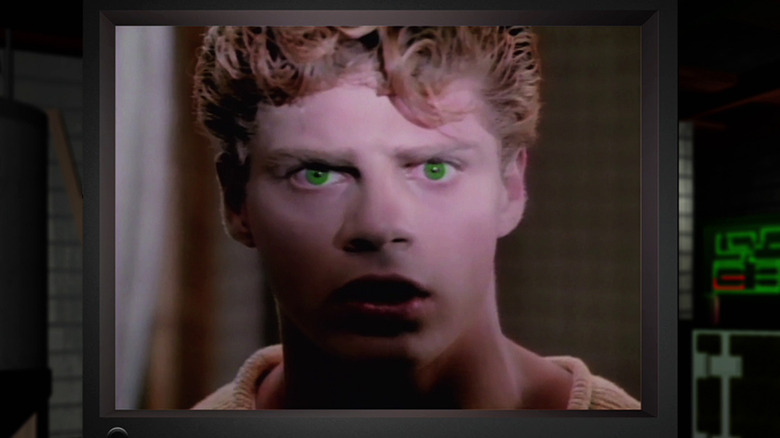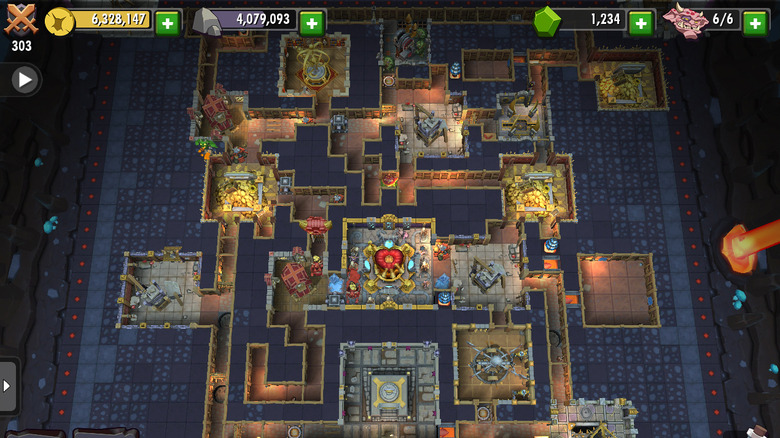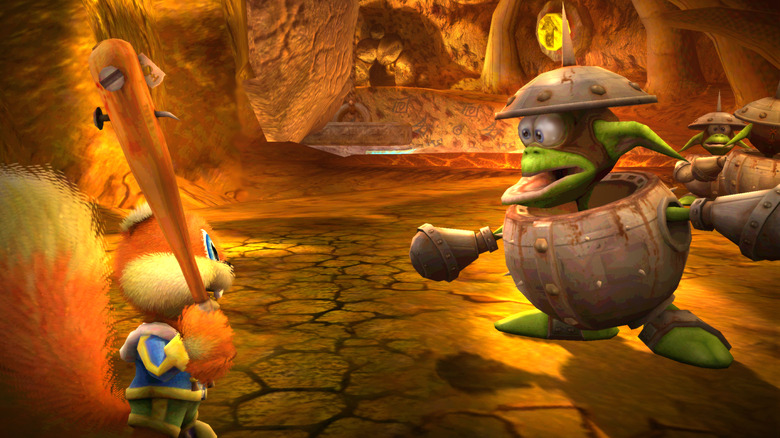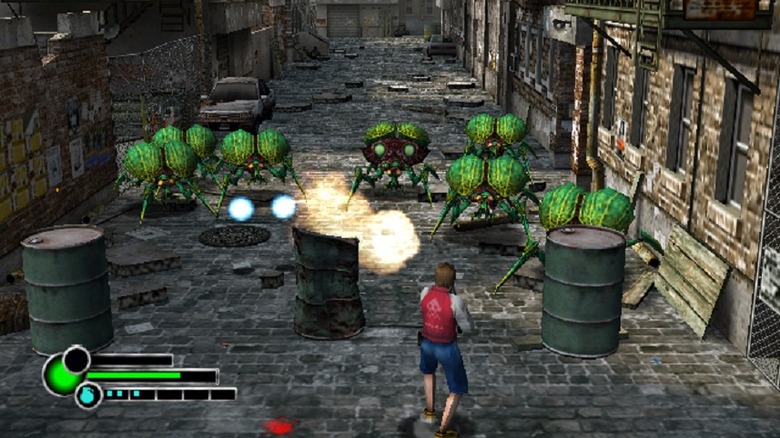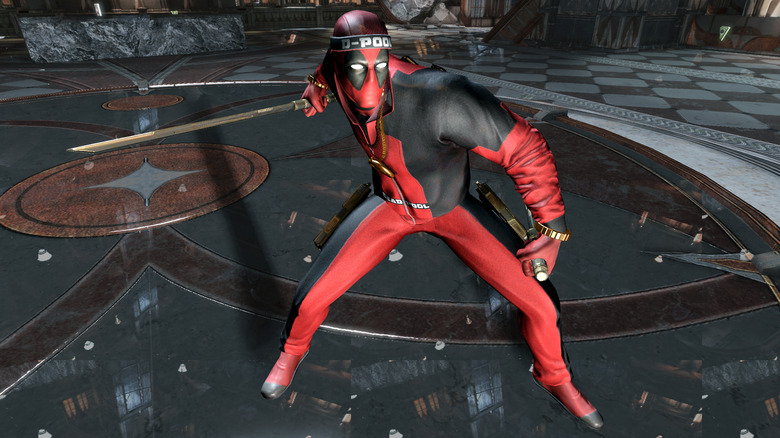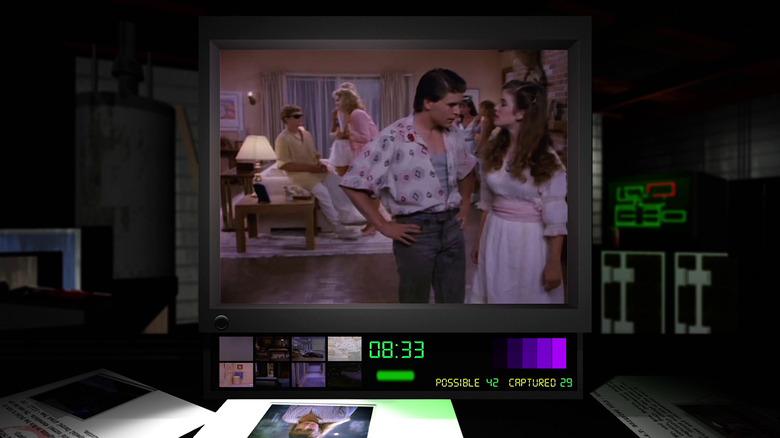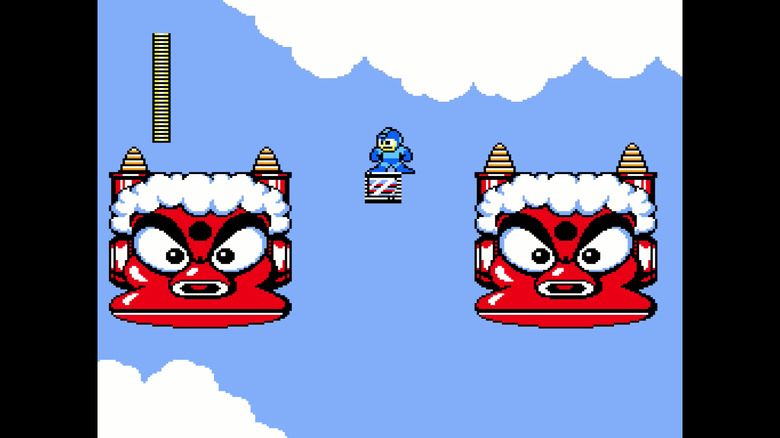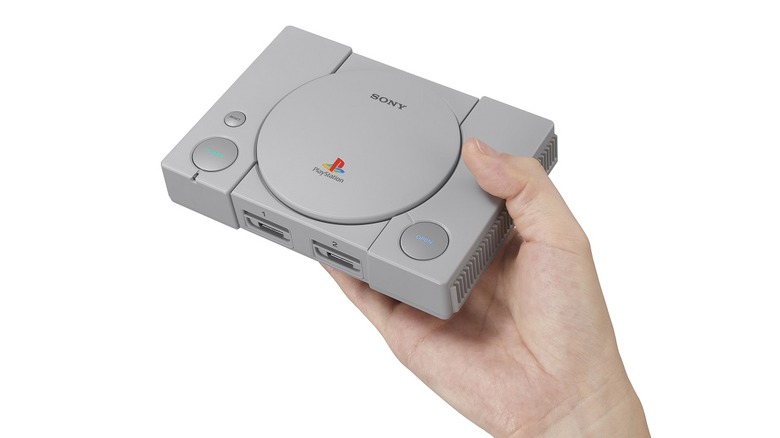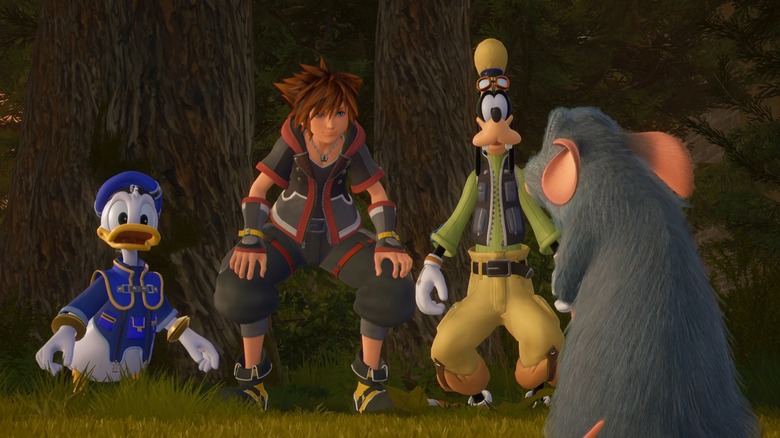Remakes That Were Clearly Just A Cash Grab
Remakes are the ultimate safe space for entertainment. Sometimes, it can be a well-known property with a built-in fanbase, simply being reimagined for a new audience. Other times, it's taking a niche film or game and tweaking elements of it to help it find a much larger group of adoring fans. It can often be a combination of the two, but there's one thing uniting remakes: studios love working with the safety of established properties, especially if there is a high budget associated with it.
Whether we're talking about Hollywood or the world of video games, remakes are big business — but they are also frequently cited as the downfall of their respective industries. There are plenty of examples of remakes or remasters that are treated with love and provide a fantastic experience for both fans of the original work and all new fans. Look to Resident Evil 2 or the 3DS version of Ocarina of Time for those types of reworks.
But we aren't talking about those types of remakes today. We're looking to those games that hoped only to seize on our nostalgic longing and convince us to open our wallets. These are not necessarily the worst games ever, but they are remakes that were released with just one cynical goal in mind: money.
Dungeon Keeper Mobile was an insult to the original
The original Dungeon Keeper, which was released by Bullfrog in 1997, is often held up as one of the best examples of the god game genre. It sported a wicked sense of a humor and a nice give and take of both ease of play and challenge. Kotaku writes that it is a "beloved strategy game" and a "classic," so the idea that EA was going to bring a reimagining of the game to our mobile devices seemed like it could be quite a winner.
Not so fast.
While timed progression and pay-gating are fairly common practices in the mobile marketplace, this version of Dungeon Keeper took it a bit far. And it really ticked people off. Eurogamer's review of the remake stated: "That's what stings the most: not that Dungeon Keeper has gone free-to-play, but that it's done so in such soulless fashion." The Escapist's Jim Sterling brought out the big guns, awarding the game half of a star and calling it "a cynically motivated skeleton of a non-game, a scam that will take your cash and offer nothing in return. A perversion of a respected series, twisted by some of the most soulless, selfish, and nauseating human beings to ever blight the game industry."
Brutal. The Dungeon Keeper remake was eviscerated for its blatant pay-gating, and most saw it as little more than cashing in on the goodwill of the original.
Conker: Live & Reloaded was more censored than the Nintendo 64 version
Conker's Bad Fur Day had a really bizarre journey. The game was originally intended to release for the Nintendo 64 as another kid-friendly, 3D platformer from Rare, similar to Banjo-Kazooie or Super Mario 64. Kotaku writes that Rare wanted to take the game in a slightly different direction, however, and soon started transforming the game into a much more adult-oriented style, although Conker's Bad Fur Day was still decked out to look like a kiddie platformer.
Gamers were pumped to hear that the game was getting remastered as Conker: Live & Reloaded for the original Xbox, but there were a few curious changes made from the original.
The big one, which still bothers a lot of people, was the censorship in the remastered Live & Reloaded. The Nintendo 64 version got away with loads more, says the argument; why not the Xbox version?
An interview with the developers claims the censorship choices were made so that more stores would sell the game, which is understandable. Slightly more understandable is the argument that Live & Reloaded released about the same time as the "Hot Coffee" incident from Grand Theft Auto: San Andreas blew up, and retailers were spooked by mature content.
Regardless, the only way to listen to the Great Mighty Poo is in his original form.
Space Raiders was an updated, 3D version of ... Space Invaders?
C'mon, be honest: did you even know this was a thing? There have been plenty of Space Invaders clones over the decades, but a true reimagining — created by Taito, the developer of the original game — of Space Invaders? In 3D, with a story, voice actors, and all the fixin's? It's probably best that we all forgot about this one.
GameSpot wrote in its review of the GameCube exclusive title that Space Raiders "ultimately proves to be both a laughable attempt at re-creating Space Invaders and a terrible experience from beginning to end." Even more confusing, European audiences got the exact same game released as a PS2 exclusive called Space Invaders: Invasion Day. Eurogamer has a piece on how two "exclusive" games (that are the same game) got released for different systems in different regions.
The better question, however, is this: why? Space Invaders was released in 1978, so why would anyone think that adding a story and updated graphics to an almost 30-year-old game was a good idea? It seems the main plan with Space Raiders was, "Let's see if any suckers buy this because it's tied to Space Invaders."
Deadpool's remaster transformed a very average game into another very average game
The original Deadpool title released in 2013, and was largely received with a bit of a "meh." DarkZero's review of the game calls it "not a letdown," which is some serious backhanded praise. Thunderbolt says, "It's formulaic, but there's fun to be found in its simple violence, even if tedium is quick to follow," and IGN writes that Deadpool's combat "starts off uninteresting and grows more stale the longer you play."
If Deadpool was so unremarkable the first time around, why did it see rerelease a mere two years later?
Congratulations if you said, "Because some executive saw dollar signs in them there hills." The remastered version of Deadpool released at the end of November 2015, just three months before Ryan Reynolds took superhero cinema by storm with his Hollywood depiction of the Merc with a Mouth. Unfortunately, the remaster of Deadpool didn't bring much more to the table, and the reviews were painfully tepid once again. GameCrate called it "somewhat average" and bemoaned the fact that it cost $50. Den of Geek wrote that it gets "good marks for trying."
None of those words should tempt gamers into diving into this one.
Night Trap 25th Anniversary commemorated a pretty awful release
Count yourself lucky if you weren't around during the heydey of FMV games. Basically, the characters on screen were live actors (although, in many cases, we're using that term very generously), and gameplay mostly consisted of choosing a few options and watching to see what would happen. Which brings us to Night Trap, the most infamous of this style of game from the early 1990s.
Night Trap is only really remembered because it was lumped in with Mortal Kombat during the Senate hearings on violence in video games. Players took on the role of a Spec Ops agent who works for the "Special Control Attack Team" ("SCAT" — *groan*) and tries to help a group of titillating teenagers survive a home invasion. The game was mainly attacked for promoting voyeurism and violence against women, and there was even a great sound bite of the chairman of Nintendo, Howard Lincoln, saying, "And let me say that for the record, I want to state that Night Trap will never appear on a Nintendo system."
Of course, you can now play Night Trap: 25th Anniversary Edition on your Nintendo Switch! Destructoid writes that the original was a "barely playable experience" and that the remake is a "somewhat tolerable game," but that doesn't change the fact that Night Trap should have just gone away. A turd is still a turd, no matter how polished it is. The only reason to rerelease this is to grab a few dollars out of your curiosity.
Mega Man 2's mobile version is a terrible, broken port of the classic
Mega Man 2 is frequently listed as a near-perfect example of the 8-bit platformer. The music, the difficulty, the sense of accomplishment ... Capcom's second title featuring the Blue Bomber seemingly has it all. Tying it all together was a near-impeccable sense of control over the main character.
Imagine trying to control that character on your phone's touch screen. Good news: you don't have to imagine it. You can experience that sheer hell for yourself with the mobile version of Mega Man 2.
Bringing a game to a new platform is not inherently wrong; Mega Man 2 has appeared in various collections and rereleases over the decades since its initial release. But the mobile port was a travesty. It isn't just broken controls, as Ars Technica writes: "All six [original Mega Man] games currently appear to run at inconsistent frame rates, typically 30fps or less, which is brutal for a classic series that relies so heavily on precise jumps and tricky enemies. Worse, on iOS, the games' iconic songs have been butchered by apparently broken sound emulation, with many tones sounding entirely off-key and running at the incorrect tempo."
If you want to play Mega Man 2, there are much better versions you can spring for than a broken mobile port. Save your cash.
The PlayStation Classic is anything but classic
It came as no surprise, given the wild success of the NES and SNES Classic systems from Nintendo, that PlayStation would hop on the nostalgia train with their own "emulator inside a miniature console" concept. For a while, it seemed like it could be something magical. As the release date crept closer and closer, there was still very little information out about the system. Then the harsh reality set it: the PlayStation Classic was not going to be on quite the same level as Nintendo's offerings.
The ultimate lineup for the PlayStation Classic was ... uninspiring. Tech Radar writes that only five of their top 25 PS1 games were included with the mini-console; compare that with the SNES classic, which included 19 of their top 25 SNES games. Certain features — both quality of life and things that the PS1 pioneered — are missing entirely. Geek calls the PlayStation Classic "the worst way to experience" these games.
Once the system was in our hands, things got even worse. The emulation software included was a slapdash effort, easily crackable and with hardly any elements packed in to justify its purchase. Prices dropped, and demand for Sony's attempted swing at nostalgia looks to be, largely, a whiff.
The Kingdom Hearts games were repackaged so many times it will make your head spin
Whoa, put down the pitchforks. Kingdom Hearts is one of those hallowed franchises that is, essentially, criticism-proof, but we need to look at a few facts here:
Kingdom Hearts 3 came out in Jan. 2019. That's a full 12 years since Kingdom Hearts 2, and nearly TWO DECADES since the original game.
"So they're taking their time?" You could call it that, but there have been over 20 "different" Kingdom Hearts releases in that time. There are HD "Remix" versions of both Kingdom Hearts and Kingdom Hearts 2, an HD collection that includes both of those, another HD collection that includes both of those plus a few others called Kingdom Hearts 2.8 Final Chapter Prologue (really), and another collection that includes those AND Kingdom Hearts 3.
The Kingdom Hearts series isn't just about an insane, convoluted story that requires over a 12-minute video just to catch people up enough to play the newest iteration: it's also about rereleasing the same content on every possible platform and in multiple variations. They aren't bad games — not by a longshot — but it seems a bit greedy of the House of Mouse to repackage the content so many different times.

